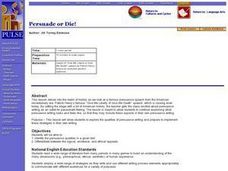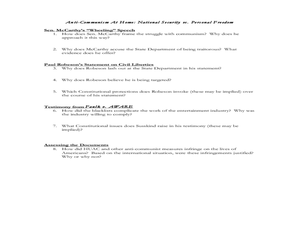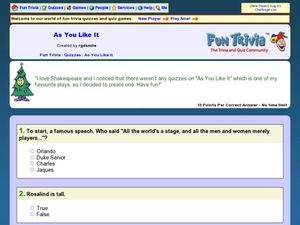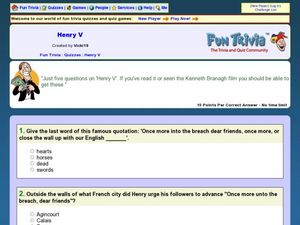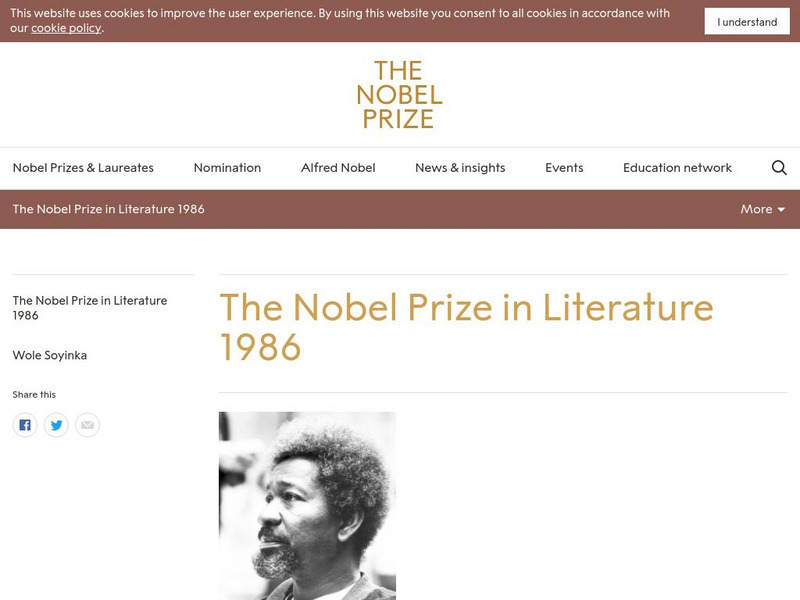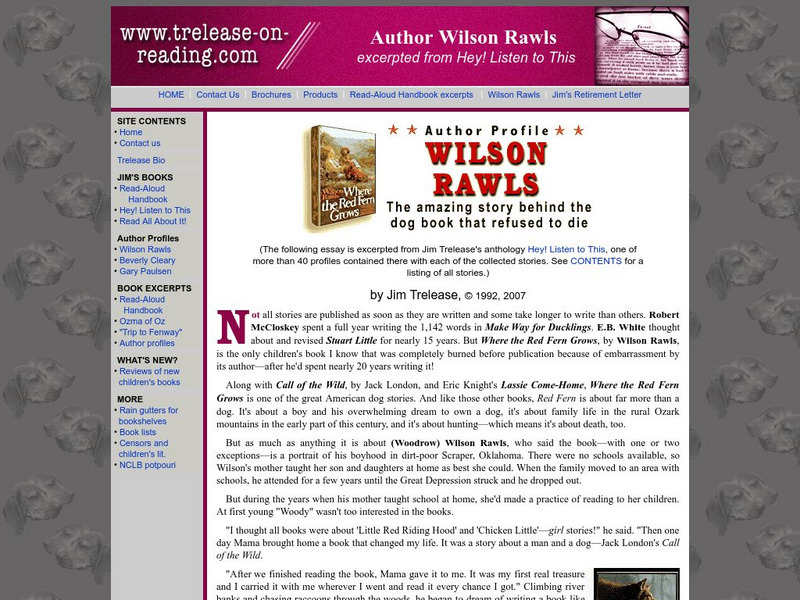National Endowment for the Humanities
Folklore in Zora Neale Hurston's Their Eyes Were Watching God
Learners define folklore, folk groups, tradition, and oral narrative. They identify traditional elements in Their Eyes Were Watching God Analyze and understand the role of traditional folkways and folk speech in the overall literary...
Curated OER
Persuade or Die!
Students read Patrick Henry's speech. They review prior learning about persuasive writing, and the American revolutionary war. Students listen as the teacher reads Patrick Henry's speech aloud to the class using lots of emotion and...
Curated OER
The Cold War: Anti-Communism at Home
Eleventh graders take a closer look at the Red Scare. In this Cold War lesson plan, 11th graders read the provided literature about anti-communism in the United States and then respond to the provided discussion questions that accompany...
Curated OER
Colorado Greats Trading Cards
Pupils research to find information about famous people from Colorado. They copy and save pictures from the Internet, then make a trading card containing important biographical data.
Curated OER
As You Like It Quiz
How well do your readers know As You Like It? Find out with this quick multiple-choice quiz. Most questions focus on characters and who did what.
Curated OER
Henry V Quiz
Five quick questions ask about quotes and characters from Shakespeare's Henry V. Give this quiz to your students as a warm-up or diagnostic test.
Curated OER
Alliteration
Students write and illustrate a sentence which names a letter of the alphabet. The sentence should have subject, verb, describing words, and incorporate alliterative techniques.
Curated OER
Frankenstein
Students use an outline of the story "Frankenstein" to identify mistakes in English. They practice making corrections to make the sentence correct. They answer questions to end the lesson plan.
Curated OER
Restaging Julius Ceasar
Young scholars engage in a lesson looking at a major scene of a Shakespeare play. They assume the role play of being the director and apply problem solving skills in order to conduct the scene. Others must switch roles and take on the...
Nobel Media AB
The Nobel Prize: The Nobel Prize in Literature 1988: Naguib Mahfouz
This the Nobel Foundation page on Naguib Mahfouz, winner of the Nobel Prize for literature in 1988. You'll find bibliographic information, his Nobel speech, and articles written about him.
American Rhetoric
American Rhetoric: William Faulkner: Nobel Prize in Literature Acceptance Speech
This is the text and audio of William Faulkner's acceptance speech for the Nobel Prize in Literature delivered on December 10, 1950, in Stockholm Sweden.
Nobel Media AB
The Nobel Prize: The Nobel Prize in Literature 1986: Wole Soyinka
Read about the 1986 winner of the Nobel Prize in Literature, Wole Soyinka. This website is organized into the following sections: "Press Release," Presentation Speech," "Biography," "Nobel Lecture," and "Other Resources."
Nobel Media AB
The Nobel Prize: The Nobel Prize in Literature 1986 Award Ceremony Speech
Text from a speech introducing Wole Soyinka before he accepted the 1986 Nobel Prize in Literature. Contains biographical information and discussion of his literary works.
Other
Author Profile: Wilson Rawls
This site contains an engaging biography of Wilson Rawls and provides access to an audio tape of a famous speech Rawls gave about himself and the book.
Nobel Media AB
The Nobel Prize: Wole Soyinka Biographical
Nobel E-Museum offers this biography of African author Wole Soyinka, winner of the 1986 Nobel Prize in Literature.
American Indian Heritage Foundation
Indigenous Peoples' Literature: Chief Joseph (Nez Perce)
This site provides some biographical information about Chief Joseph from several sources as well as information on the Nez Perce. There are quite a few quotes from the great American Indian as well as a link to his famous surrender speech.



